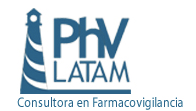 The FDA, or Food and Drug Administration, is the agency of the United States of America responsible for regulation and supervision of food safety, tobacco products, dietary supplements, prescription and over-the-counter pharmaceutical drugs, vaccines, biopharmaceuticals, blood transfusions, medical devices, electromagnetic radiation emitting devices, and veterinary products. It’s also in charge of enforcing other laws and regulations not directly related with food or drugs.
The FDA, or Food and Drug Administration, is the agency of the United States of America responsible for regulation and supervision of food safety, tobacco products, dietary supplements, prescription and over-the-counter pharmaceutical drugs, vaccines, biopharmaceuticals, blood transfusions, medical devices, electromagnetic radiation emitting devices, and veterinary products. It’s also in charge of enforcing other laws and regulations not directly related with food or drugs.
The FDA’s headquarters are located in Maryland. The agency also has 223 field offices and 13 laboratories throughout the US, and some offices in foreign countries, including China, India, Costa Rica, Chile, Belgium, and the United Kingdom.
Its importance goes beyond product registration in the US; it’s relevant for regulatory affairs in many other countries. These are some of the reasons:
- Many pharmaceutical products, especially biotechs and other that require high-tech processing of manufacturing, are produced in the US.
- Many countries require products to be registered and/or marketed in a “high sanitary-surveillance” country to be considered for the local market, sometimes as an absolute condition, and in other cases for expedite revision process. The US is universally considered a “high sanitary-surveillance country”. To proof that a product is actually registered and/or marketed in a country, there is a document called CPP (Certificate of Pharmaceutical Product) that is to be requested to the health authority.
- Many countries (such as Mexico and Turkey) accept foreign GMP certificates if they are issued by “high sanitary-surveillance” health authorities, like the FDA.
- Many health authorities tend to mirror FDA sanitary decisions, such as the market recall of a drug product or the addition of a special warning in the labeling text.
- The FDA, together with the European and the Japanese regulatory health authorities, conform the ICH, International Conference on Harmonisation of Technical Requirements for Registration of Pharmaceuticals for Human Use. This entity issued a series of guidelines on quality, efficacy, safety and other aspects of pharmaceutical products that are now standards accepted or adopted by many countries around the world.




